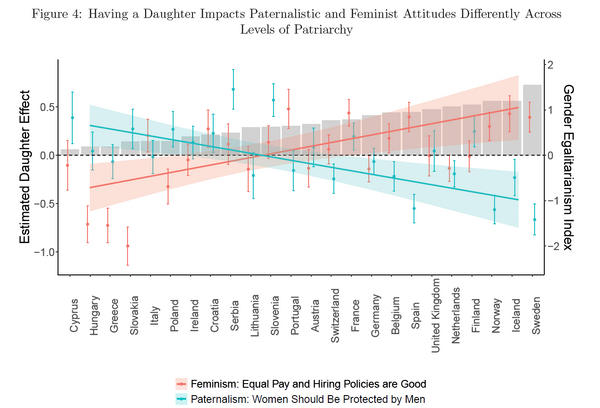What Women Need: The Public Policy Effects of Patriarchy
with Beatrice Montano (Columbia University) and Chiara Superti (Columbia University)
Even as male political leaders increasingly portray themselves as women's rights advocates, gender gaps in economic and political power persist. We propose that patriarchal norms significantly influence how male leaders understand ``what women need" and, consequently, which ``pro-women" policies they pursue. Widespread paternalism leads to protective measures focused on women's safety instead of emancipatory policies aimed at promoting economic independence. Examining Italian municipalities, we compare the effects of increased salience of gender issues on spending across towns with different historical patriarchal norms. In contexts with weak patriarchal norms, mayors with daughters allocate 11% more to emancipatory policies and 16% less to protective ones. In areas with strong patriarchal norms, they more than double protective policy investments while reducing emancipatory spending by 7%. Bolstering our argument, non-native mayors' policy choices reflect their hometown norms, while non-term-limited mayors demonstrate similar patterns. Cross-national survey evidence is also consistent: male respondents with daughters prefer protective policies in countries with stronger patriarchal norms, while emancipatory policies prevail in those with weaker norms.
Here is the current draft of the paper.
